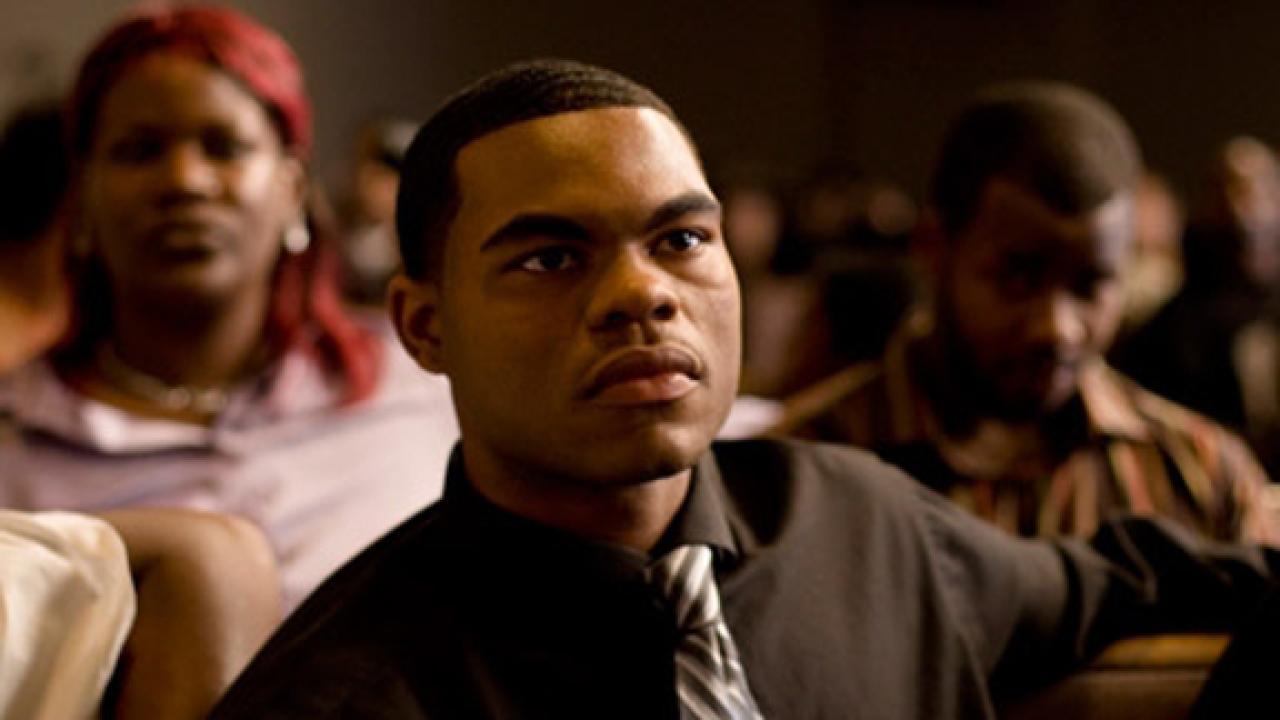Every day presents an opportunity to learn more about one another, about our diversity, and maybe even come to understand that, as different as we are, and as good as that is, we are also more alike than we may think.
Two upcoming film programs — free and open to the public — can help in our education as we press on with the Hate-Free Campus Initiative.
• Bilal’s Stand (Feb. 2) — Based on a true story, about a young Muslim who secretly applies to college — at a time when his family is relying on him "to carry the torch" at the family's taxi stand business. The film is being presented by Academic Preparation Programs in partnership with the Student Recruitment and Retention Center, the Early Academic Outreach Program, the Cross Cultural Center, and the Office of Campus Community Relations.
Sultan Sharrief, the writer-director of Bilal’s Stand, and one of the producers, is scheduled to attend the screening and lead a discussion afterward. Organizers said he will address the movie's themes, namely, diversity on college campuses, taking a stand for what you believe in, and the challenges that confront first-generation students.
• Race: The Power of an Illusion (Feb. 3, March 12 and May 12) — A continuation of the 2010-11 Campus Community Book Project, sponsored by the Office of Campus Community Relations. The three-part documentary will be presented in three installments, with a discussion after each episode.
Bilal’s Stand
The website for this independent film describes Bilal Mahdi as an opinionated high school senior in Detroit who works long hours to keep up both his grades and his family’s long-owned taxi stand.
“ ‘The Stand’ has been the family’s social and financial hub for 60 years, and now Bilal is destined to carry the torch.
“Yet despite a series of setbacks at home, Bilal secretly submits a college application and takes up ice carving in order to win a scholarship. Now he is forced to decide whether to continue running The Stand — the only life he has ever known — or take a chance at social mobility.”
Bilal’s Stand, from Beyond Blue Productions,premiered at the 2010 Sundance Film Festival, in the NEXT category — for films that “stretch a low budget to create big art.”
Beyond "big art," Bilal's Stand — the making of it, and the film's message — inspired a movement: the Take a Stand campaign, using "socially conscious media to inspire positive action towards bettering yourself and your community."
Bilal’s Stand — 6:30-8:30 p.m. Wednesday, Feb. 2, Freeborn Hall
Race: The Power of an Illusion
The documentary’s website states: “The division of the world's peoples into distinct groups — "red," "black," "white" or "yellow" peoples — has became so deeply imbedded in our psyches, so widely accepted, many would promptly dismiss as crazy any suggestion of its falsity.
Yet, that is exactly what the documentary claims. “Race: The Power of an Illusion questions the very idea of race as biology, suggesting that a belief in race is no more sound than believing that the sun revolves around the Earth.”
The website continues: “Yet race still matters. Just because race doesn’t exist in biology doesn’t mean it isn’t very real, helping shape life chances and opportunities.”
Race: The Power of an Illusion came out in 2003, a project of the nonprofit organization California Newsreels, which has been producing and distributing social justice films since 1968.
Race: The Power of an Illusion — Starting time for each episode is 11:30 a.m. in the Shields Library Instructional Lab (first floor). Each episode runs for just under an hour, and the discussion after each film will continue until 1 p.m.
The presentation dates and topics, with descriptions from the website:
• Thursday, Feb. 3 — Episode 1: “The Difference Between Us,” examining the contemporary science — including genetics — that challenges our common sense assumptions that human beings can be bundled into three or four fundamentally different groups according to their physical traits.
• Wednesday March 2 — Episode 2: “The Story We Tell,” uncovering the roots of the race concept in North America, the 19th-century science that legitimized it, and how it came to be held so fiercely in the western imagination. The episode is an eye-opening tale of how race served to rationalize, even justify, American social inequalities as “natural.”
• Thursday, May 12 — Episode 3: “The House We Live In,” asking, If race is not biology, what is it? This episode uncovers how race resides not in nature but in politics, economics and culture. It reveals how our social institutions “make” race by disproportionately channeling resources, power, status and wealth to white people.
On the Web
Race: The Power of an Illusion
Media Resources
Dave Jones, Dateline, 530-752-6556, dljones@ucdavis.edu
